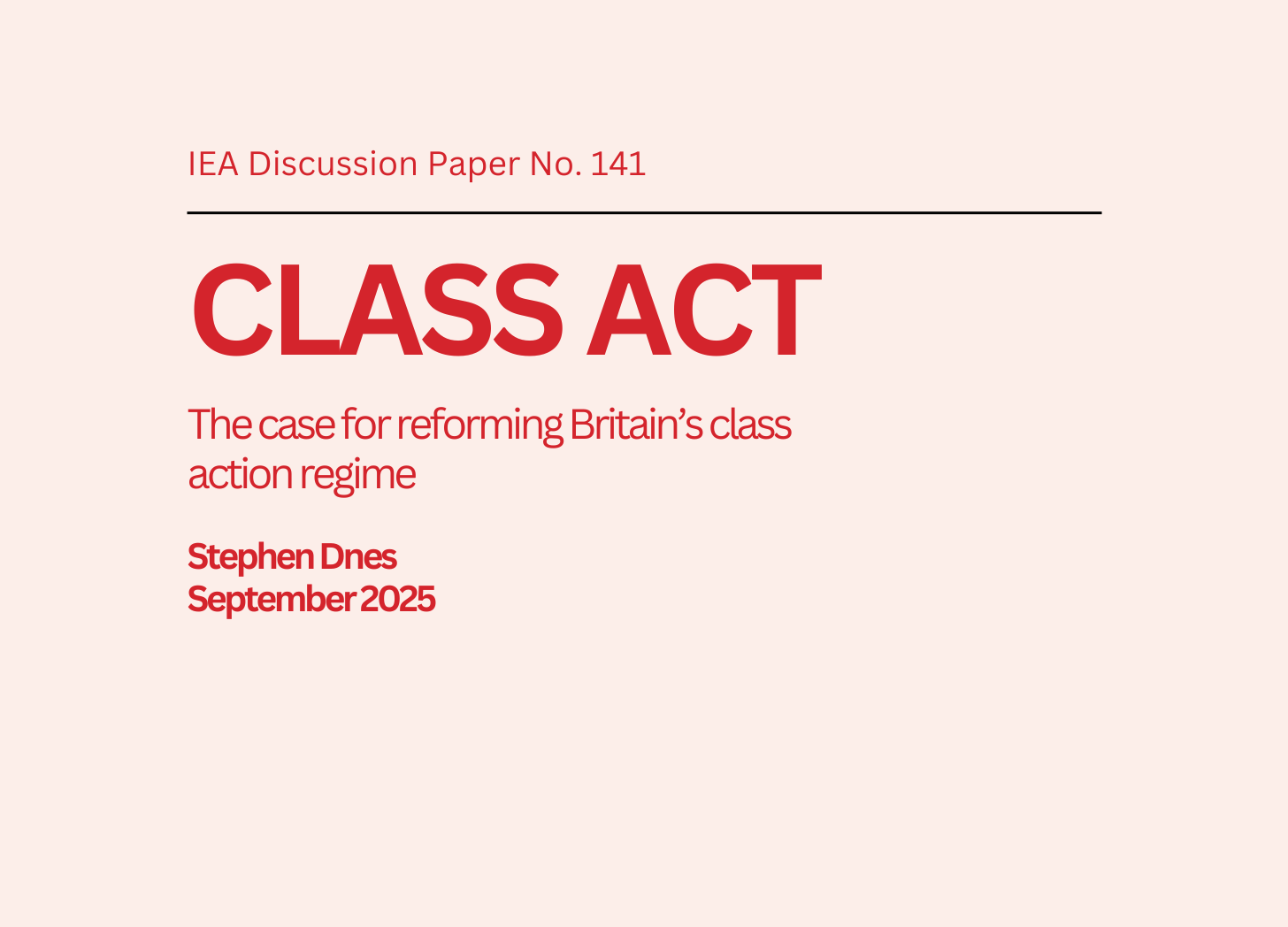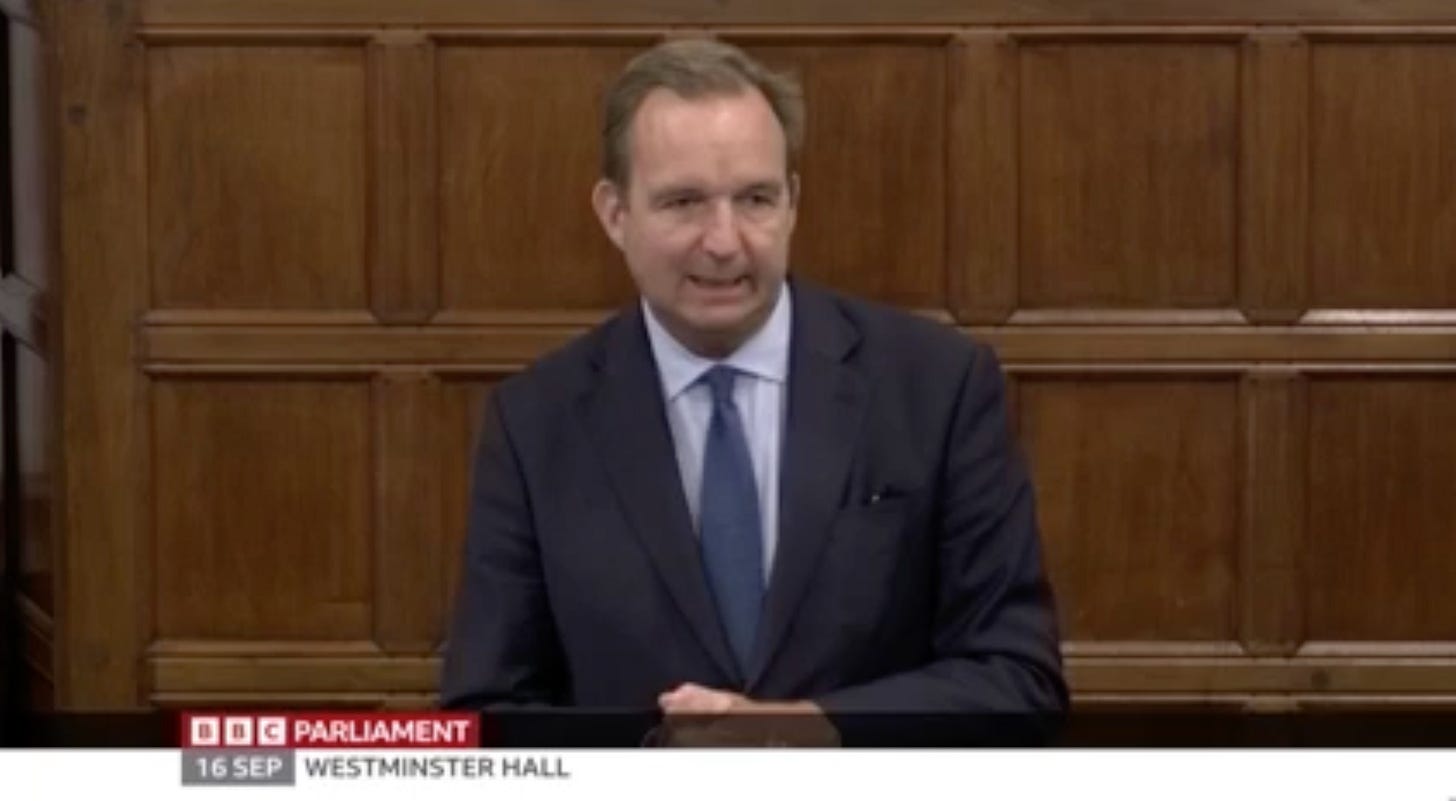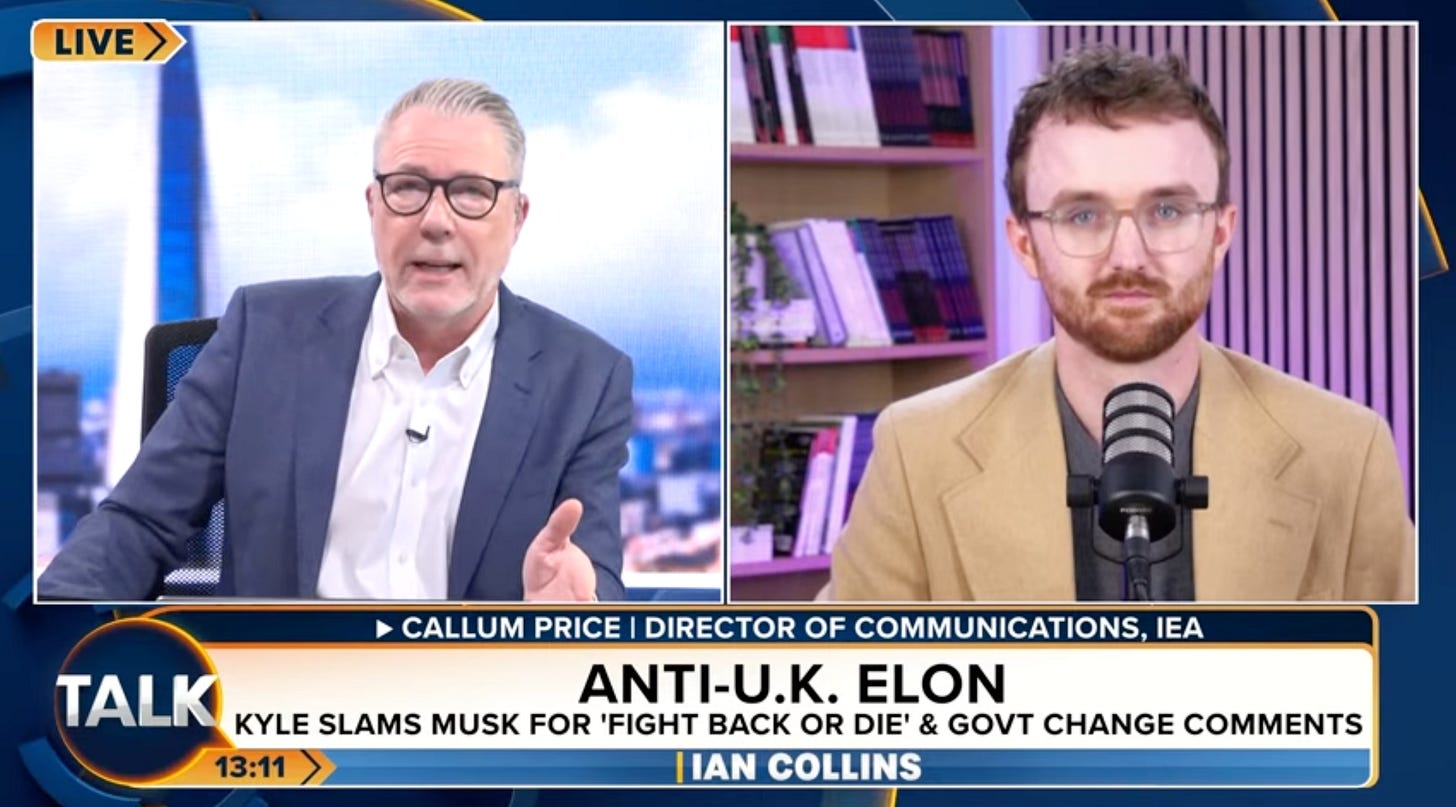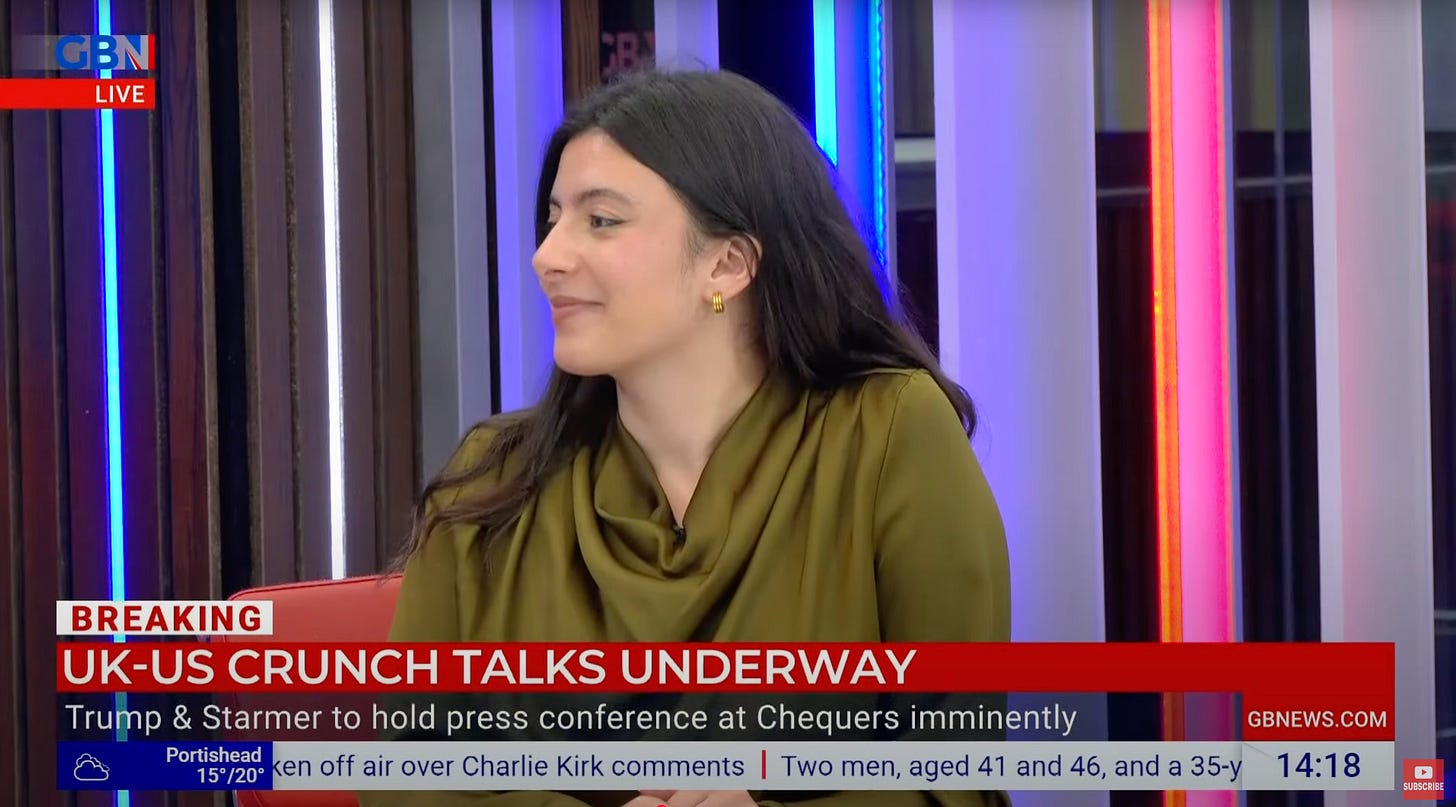Trump goes nuclear
Plus: How should we reform Britain's class action regime?
In today’s newsletter:
How groundbreaking is the new US-UK nuclear deal?
Why are there £134bn worth of pending class actions in Britain?
The Bank of England’s decision to hold interest rates
This week, US President Donald Trump came to the UK for his second state visit. Other than the pomp and frills, the question of Peter Mandleson’s sacking, and what dress the Princess of Wales wore at the state banquet, the most interesting story to come out of the 48-hour visit was the announcement of an “Atlantic Partnership for Advanced Nuclear Energy”.
The focus of the partnership is to make it quicker for companies to build nuclear power stations in both Britain and America. The deal aligns the US Nuclear Regulatory Commission, the UK Office for Nuclear Regulation, and the UK Environment Agency to streamline and accelerate licensing, specifically targeting reactor design reviews within two years and site licensing within one year.
In practice, this means that if there is a type of reactor that has already passed all of the required safety assessments in one country, that work can be used in the other. This reduces duplication and, in theory, should cut licensing approval time.
More broadly, regulatory free-riding could be a really fantastic way to reduce the time it takes for projects to be approved. If a technology is deemed safe enough in another country, especially another country with safety standards akin to ours, it should be deemed safe in Britain too.
The Government is aiming to halve the time that it takes to gain regulatory approval for nuclear projects. This could be very exciting.
Nuclear energy is the safest and most reliable energy source in the world. Unlike solar or wind, nuclear offers power 24/7. It also takes up a fraction of the space.
Unfortunately, Britain is currently one of the most expensive places in the world to build new nuclear reactors. Regulatory restraints are one of the main culprits, and this has only gotten worse since the turn of the century. Hinkley Point C, for example, is estimated to cost £46 billion when finished, making it the most expensive nuclear power station ever built.
This problem becomes even more startling when you compare the UK to our international counterparts. According to a new report by Britain Remade, our per-kW costs are about six times South Korea’s. Both Finland and France deliver the same design, European Pressurised Reactors, for significantly less.
The problem is, as is too often the case, our burdensome planning system. Sizewell C took legal challenges, seven consultations, and an 80,000+ page environmental impact assessment to build.
In 2022, the Government announced they were aiming to reduce energy demand by 15% by 2030. Has there finally been the realisation that you cannot be a rich country without cheap and abundant energy?
The US-UK deal may be a small step in helping ease the problem, but we could go much further and actually overhaul the red tape holding Britain back.
Regulatory reforms could significantly reduce the cost of nuclear energy in Britain and make financing projects must easier. However, it remains to be seen whether, even then, large-scale nuclear projects would be viable without Government support. Small Modular Reactors may prove more feasible as a market-led option.
Ultimately, if we are serious about energy abundance and economic growth, then we have to go beyond international cooperation and first focus on domestic regulatory reform.
Reem Ibrahim
Head of Media & Linda Whetstone Scholar
The best way to never miss out on IEA work, get access to exclusive content, and support our research and educational programmes is to become a paid IEA Insider.
IEA Podcast: Head of Media Reem Ibrahim, Executive Director Tom Clougherty, and Editorial Director Kristian Niemietz discuss the UK economy, nuclear energy and why Britain’s future could be French — IEA YouTube
Class Act: The case for reforming Britain’s class action regime
Recent years have seen sharp growth in the number and scale of class actions filed before the UK Competition Appeal Tribunal.
Pending claims are worth an estimated £134 billion. There are 655 million claimants, that is, ten claims per person. On average, there is roughly one new class action every week.
The sudden increase in the scope of claims raises questions about their quality. The strong economic case against hardcore cartels applies equally to private litigation, but there are also some more adventuresome cases which stray from true cases of economic harm. Such cases increase costs and could harm innovation.
Why Every British Adult is Now in a Class Action Lawsuit | IEA Briefing, Managing Editor Daniel Freeman interviews report author Stephen Dnes, IEA YouTube
Class action boom hampers Britain’s economic expansion, CityAM
The surge in cases could cost the UK economy up to £18bn, diverting resources away from innovation and undermining growth, according to a new Institute of Economic Affairs (IEA) report… A report, authored by lawyer Stephen Dnes, warns that the UK’s competition class action system has seen an explosion of speculative lawsuits, with around one new class action filed each week, driving up legal costs and exposing businesses to significant financial risk.
IEA urges overhaul of UK’s GBP 134 billion class action regime, iclg
Think Tank Wants Funders To Bear Costs In Bid To Curb CPOs, Law360
UK economy faces £18bn hit from surge in class action lawsuits, IEA report claims, Business Live
News and Views
What is Economic Growth? Episode 1 | Economics 101, Dr Steve Davies, IEA YouTube
Wealth Managers React As UK Puts Interest Rates On Hold, Executive Director Tom Clougherty was quoted in Wealth Briefing
The Bank's decision to hold interest rates while slowing the pace of quantitative tightening is a sensible one. It is hard to make a case for a more aggressive loosening of monetary policy while measured inflation remains stubbornly high. However, growth in broad money is low, which suggests that price rises are coming from supply-side factors – like taxes and regulatory restrictions that drive up costs. That is regrettable, but not something the Bank can or should do much about. What we really need now is spending restraint and a much more ambitious pro-growth agenda from the government.
Employment Rights: Impact on Businesses, Institute of Economic Affairs research on the Employment Rights Bill was referenced by Lincoln Jopp MP in a Westminster Hall debate
Fiscal conservatism needs a revamp, because it may sound grey but it’s what we need, Director of Communications Callum Price wrote in ConHome
The size of our state and the scale of Government spending is barely fathomable, and entirely unsustainable.
The national debt has skyrocketed in the aftermath of Covid to 100 per cent of GDP. Just paying the interest on that debt costs more than we spend on the police, justice system and defence combined. Forty per cent of spending goes on health and welfare, including pensions.
These are not costs that are on a downward trajectory. Our population is getting older, which not only means more pensions and more healthcare to fund, but fewer working-age people to do the funding.
Nobel Prize Economist: Why Institutions Matter, Executive Director Tom Clougherty interviews Professor Simon Johnson, IEA YouTube
Is the welfare state too big?, Head of Media Reem Ibrahim appeared on LBC
City AM Shadow MPC votes 8-1 to HOLD interest rates, Economics Fellow Julian Jessop was quoted in CityAM
Julian Jessop, who backed an interest rate cut in August, said more data was needed to justify interest rates being cut further as they had already fallen to a “reasonable level”.
He put more emphasis on the management of the Bank’s QT programme when making a decision on interest rates this time around.
“The key decision at this meeting will be the pace at which the Bank will reduce its holdings of gilts over the coming year,” Jessop said.
“A significant scaling back of bond sales would strengthen the case for leaving Bank Rate on hold.”
Why China's Economy is Failing, Managing Editor Daniel Freeman interviews Ian Williams, IEA YouTube
OPINION: Is it safety or sales pushing the lower drink-drive limit?, Head of Lifestyle Economics Dr Chris Snowdon has written for the Morning Advertiser
Director of Communications Callum Price appeared on TalkTV
What is the new US-UK deal?, Head of Media Reem Ibrahim appeared on Jeremy Vine’s BBC Radio 2 show
Labour warned gambling levy changes would be ‘irrational’, Head of Lifestyle Economics Dr Christopher Snowdon was quoted in CityAM
Christopher Snowdon, head of lifestyle economics at the IEA, said the government “seems intent” on directing gamblers towards offshore markets that limit government revenue in the UK.
UK-US crunch talks underway, Head of Media Reem Ibrahim appeared on GB News








Great interview Tom. And great questions, especially the last one. It’s clear to me that despite the immense knowledge and understanding of professor Simon’s work an answer beyond cutting expenditure is unknown. I understand that we all look back at great economists and visionary’s trying to dissect every inch of information in order to get an answer but, even with all that expertise and knowledge we still can’t get an answer to the predicament of excessive deficits and high borrow over a long period of time. I tuned in to hear a great discussion on a view from a Nobel prize winner, a past member of the IMF “it’s mainly fiscal” brigade. And the only conclusion was a ‘light’ warning of the need for prudence and fiscal stability through cuts on spending. I’d hoped for more, to be honest. It’s obvious to me, that the combined view of cutting our expenditure on government public services (cutting their spending) whilst excessive taxation prevails) seems to be the only answer to avert an IMF bailout. But surely there has to be more than that? There are two sides to even that coin. Less government spending with more taxation and higher/lower borrowing on one side and a bailout (handout) on the other. But does that fix it? No! Is it going to work long term. No. If you cut down much like Argentina, will the government be solvent? No of course not! We need so much more from our economy. I’m surprised at the lack of guidance. We learn so much about the past but very little guidance, leadership or vision for the future. Now that does surprise me. Professor Simon had a great storey of capitalist society’s that have grown up. But what he missed out on was the need for Money snd spending. They are easy to overlook. But a modern economy has to have both and without both nothing works. Expansion over et the last few hundred years worldwide was for need and greed. Never be surprised with those who are industrious enough to gain wealth and power. They use others of their own money to attain more. It’s not unusual. It’s as seen. The correlation to individuals and the ruling class going out to get is even more wealth and power is nothing new. And it’s not surprising that those society’s well funded and well managed do the best. The fact that backward nations don’t do well because well managed thinking and prosperous nations with good skills do better isn’t really misunderstood. But I’m not sure if it was just too short an interview but, I’d have liked to have heard him go further. Indeed I think Simon should have gone further with those conclusions. Wealth is not just money. Any business man will tell you they swap money for goods to do, change or sell for profit, more money. In the days of the 1600s to say the end of the 1800s there was more exchanging of goods than ever before. Tobacco, wood and bananas for say, enhanced workforce solutions from slaves captured in Africa. Or industrialisation from us in the UK. It wasn’t about money so much. Yes it Brian with money and it ended in money but, the in between was a little bit not vague. Books were kept for sure but values were skewed just as much as now. The centres for good business would have left an indelible mark on those society’s for sure. So I get that completely. But we have hopefully moved on from those times. We are now an entrenched democracy. Not owned or traded as a powerful leadership of royal edict. And our thinking as a collective society is so much more coherent. Trump is a rascal. He had thrown away some of those advances and is acting like a baby dictator. Just finding out how far he can go. Pretty much like Putin. We see the other side of good democracy when you start to look at their actions of inaction. But that is a much bigger problem. Oligarchy is and was the corruption of power as Kennedy once said. We will need to see how all that plays out. But back to our modern day economic problems!…. The absence of clear options is very concerning. I know and realise it’s a big complicated and multifaceted problem. But, even so, a better plan out must be out there. Surely the best brains in the world must be able to come up with better than Cuts! Surely there must be a way to actually afford our needs? And in my opinion there is!…surely by now, we must see the money system we have doesn’t work. It never has and likely never will. Now for a dictatorship or an oligarchy that’s not a problem. They don’t care! They’ll do anything to stay in power and oppress their citizens if needs must. But for a modern democracy of fairness understanding and care at the heart of it then, for this society that answer wont do and shouldn’t do! It’s not good enough. So that’s my message Tom, knowing what a problem is or knowing what and how and where it came from is laudable but not good enough. We need a plan. At the moment there is no plan bite any good leadership or vision. It’s obvious to me, any economy needs just two things. Money and SPENDING. Our society is no longer based on bartering. Money should be a fair and equitable exchange of work and or production. It, money, must also work as a vehicle to exchange that work and production for money. In a cycle of rotation. Just like the blood in our veins or oil in an engine. It’s a representation of work and works as a representation of money. Value. Wealth. But what our system has given us for centuries is an unfair exchange. Or no exchange at all. Either money or work. And this has caused the exploitation of power and money and people. And the obvious rise of dictators and oligarchs and as Simon said Mafia and bandits. Abusing people, friends and foe, for gain. Everything a democratic society should never accept. What we have now is a total imbalance of the scales of fairness. The rich get richer while the poor get poorer snd what we see is a ‘sealed’ system of finite money be overwhelmingly favoured towards the mega rich and wealthy outweighing the majority of us who inevitably become porter as a result. What you see is the playing out of that scenario. In truth the way people earned money and fortune in the past is somewhat irrelevant. What is relevant is that they, whoever they are was allowed to keep hold of it! For years and decades on end. In the main because, even the ruling governments didn’t know who had it all and where it was. So to police that money or control it was impossible. But that was then. Now, we have digital banking. Now we can track and trace every penny IF ALL the money was kept in house in the country of origin. It’s easy! But we don’t use this method. We allow money to go elsewhere out of our or the governments control. That changed in 1979 under Thatcher. She stupidly took away exchange controls. We need to reinstate them. We need to ‘swap’ all old currency paper and digital for new digital uk bank only currency. We need to place a ‘spend by date’ on that money. Earn as much as you can. Reward innovation, hard work, skill, danger or just plain leadership and brilliance. Let Lionel Messi earn £1 million a week. But he has to SPEND it in the same time frame we all need it back, monthly. What this will achieve is a supercharging of money revolving through SPENDING. It creates immediately a framework of instant reward and an increase in money flow from a trickle now to a tsunami of money flow. As I say, we need just two things in an economy to reward us for work, effort and industry. Sufficient MONEY and maximum SPENDING. It’s not any more complicated than that. We need the cycle to flow. Not stop or conk out! It’s surely not beyond the realms of all the world’s thinkers to see that this simple flow is required? Okay, it’s a change of system. But even you Simon said we need an evolution of change. Well here is my evolution of change. Use the computer banking we now have that they didn’t have and the likes of Hayek would have grasped had he had the opportunity, to put that old failed and flawed system into the bin. Stick it where we stuck the thought of slavery! In the past! I could go on, but I think you get my drift. Keep money as it was intended. A fair exchange of my work for yours. And a collective democratic need for it to be recycled around our tax paying economy. My equation is MS=R money multiplied by spending equals revenue. Add in time snd you have the simplest requirement for future prosperity. A framework of payment and reward of fair exchange that is not just autonomous but perpetual. It means higher wages profits and earnings. Higher state pensions so no need for private ones. We only need one bank! Ironically even the rich get richer. From the goods and assets from SPENDING all that money instead of hoarding it. No need to borrow. We’ll be that better off! And no more government deficit. The vat alone will bring in sufficient yo pay all our needs. No more underfunding of us. We need a bigger state to care and work for all our needs. And the bank of last resort won’t be the IMF but the British Exchequer. Look, we apparently have £19 trillion pounds in the aether. If that’s true, we could get £3.8 trillion pounds a year just from one rotation of all that money via SPENDING. Not hundreds of times, just once in one year. £3.8 trillion. We get now £1.1 trillion from all taxes on that amount. And we have to borrow. So why not use it all and get more for less tax? Just think how much we could all get through our hands? The government too! What could they do with £3.8 trillion pounds? Come on guys, debate this! Surely it’s not such a jump to start the debate. Keep money, control money. Let it be a means to a good end. If we need to sell abroad make the money stay in the uk. So they too have to SPEND it on our goods to in effect equal trade. Thats what Trump wants! It’s the one thing he has got right. We buy missiles, he buys whisky! Goods flow, not money. That’s our sovereign currency, not his. Guys, what’s your idea?